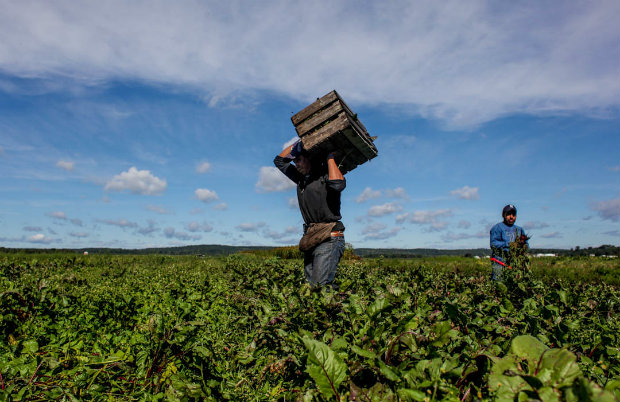On Friday last week, President Trump signed into law a $2 trillion stimulus package in response to the Coronavirus crisis. The Coronavirus Aid, Relief, and Economic Security Act – ironically abbreviated to CARES – predictably includes $500 billion in corporate loans with minimal oversight, while providing meager, means-tested, one-time payments to individuals. Under the plan, adults earning less than $75,000 per year would receive $1,200 and children $500. One group is notably excluded from even this pittance: undocumented immigrants.
Only individuals who have valid social security numbers (SSN) will qualify for a stimulus check. Those who have Individual Taxpayer Identification Numbers (ITIN) – issued by the IRS regardless of immigration status – will not be eligible. Likewise, even if an adult or child has a valid SSN, if they are part of a “mixed-status” household where one or more members has an ITIN, they will not receive a check.
According to the Migration Policy Institute, 16.7 million people are part of “mixed-status” households, and close to 11 million of those are undocumented. As such, the stimulus package prevents a substantial number of people from receiving this cash relief.
The cruelty of this exclusion is particularly glaring in light of the crisis’s impact on the material conditions of undocumented immigrants, many of whom work in the most affected industries. According to the Pew Research Center, the food service industry is one of the biggest employers of undocumented people and has been particularly hard hit due to orders to close except for take-out service. A high proportion of undocumented immigrants – around 16% – also work in construction, which has recently been declared nonessential in places like New York. Excluded from both stimulus checks and unemployment benefits, undocumented workers in these industries are left with little recourse after recent mass layoffs.
Undocumented immigrants are often forced to make a precarious living even at the best of times. In the restaurant industry, for example, they typically live paycheck to paycheck, depend on tips, and do not receive paid sick leave, all while supporting family members domestically and abroad. Likewise, undocumented individuals do not receive unemployment or SNAP benefits. These conditions leave them particularly vulnerable during the Coronavirus crisis, as they lack access to even the wafer-thin U.S. social safety net. Lack of health insurance, combined with fear of immigration officials, also presents a particular threat to public health as undocumented people avoid seeking medical attention.
“I don’t want to be forgotten. As immigrants, we shouldn’t be left behind,” said an undocumented restaurant worker interviewed by the Boston Globe. Capitalism depends on the exploitation of the undocumented, expropriating the value of their labor while offering them little in return. During times of crises, the system is happy to discard the most vulnerable among us, putting profits before lives.
The U.S.’s ossified duopoly will not provide a solution to the havoc wreaked by the Coronavirus. While Senator Bernie Sanders successfully fought to include protections for laid-off workers, and progressive members of the House of Representatives protested corporate benefits, ultimately this stimulus package was rubber stamped by both parties. The method of aid distribution – hitching it to SSN and previous tax returns – likewise received bipartisan support and follows capitalism’s tendency to equate moral worth with wealth, tax contribution, and citizenship.
Organizing in our communities and workplaces is essential to ensure that no one is left behind during this crisis. We must demand robust work protections for all, such as full paid leave and the prohibition of layoffs, particularly in the hardest hit industries, which disproportionately depend on undocumented labor. As tenants, we should organize to demand rent freezes and housing for all. We must also demand the nationalization of the healthcare system, putting it under public control and ensuring that healthcare is not a privilege for the wealthy and documented. Lastly, we must make sure to use the world’s formidable industrial capacities to fight this pandemic. Last week, a worker-controlled factory in Argentina announced that it would retool in order to produce facemasks and disinfectant, using its resources “in the service of human need” rather than for profit, setting an inspiring example for industries around the world. A system that prioritizes profits above life cannot be trusted to overcome the challenges posed by the Coronavirus epidemic and all but guarantees that the most vulnerable will be hit the hardest.











